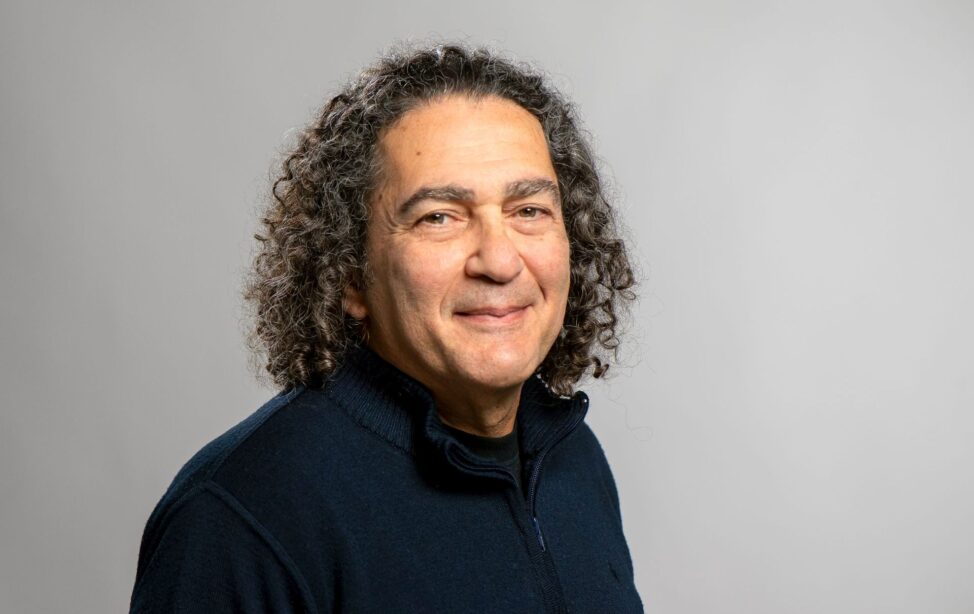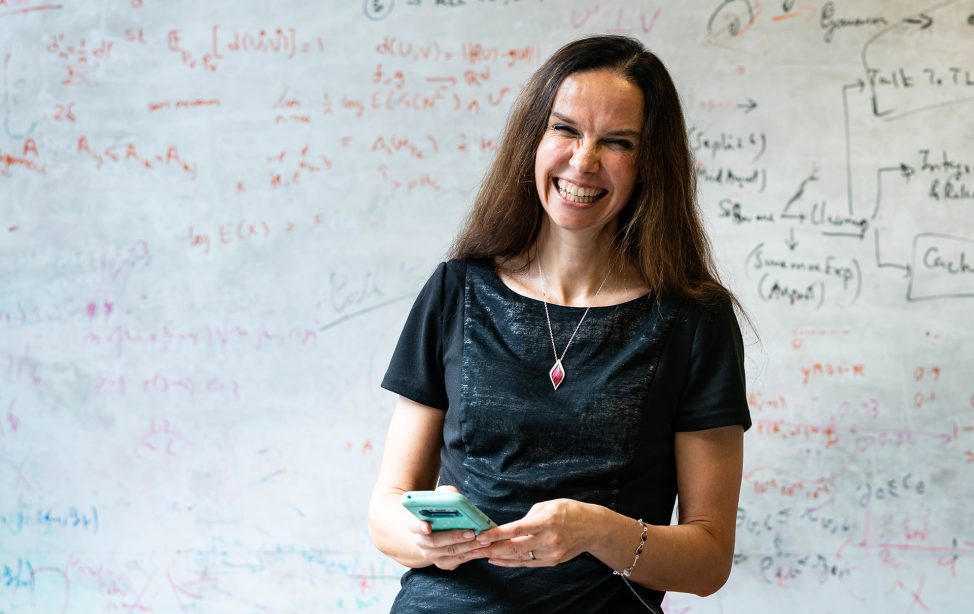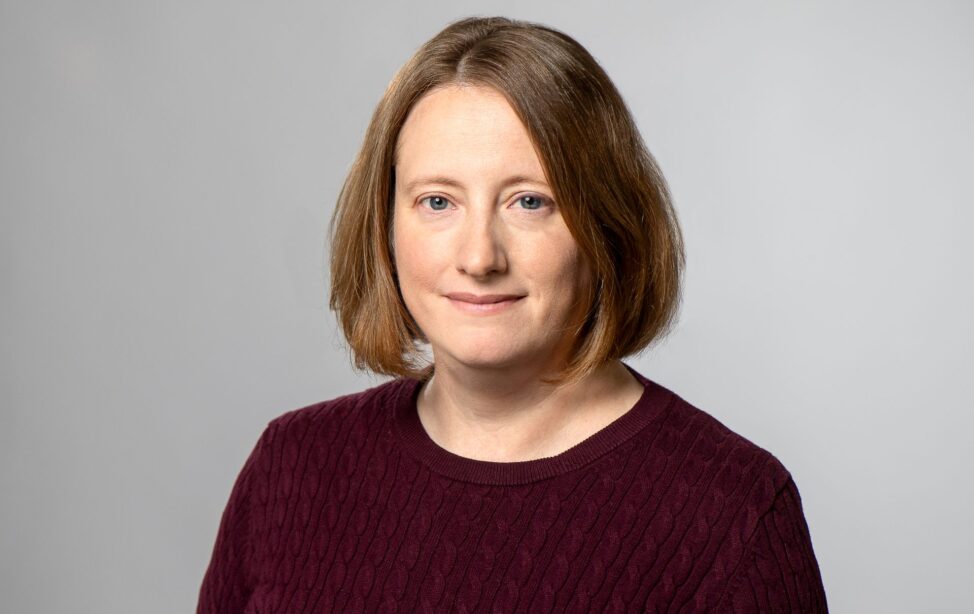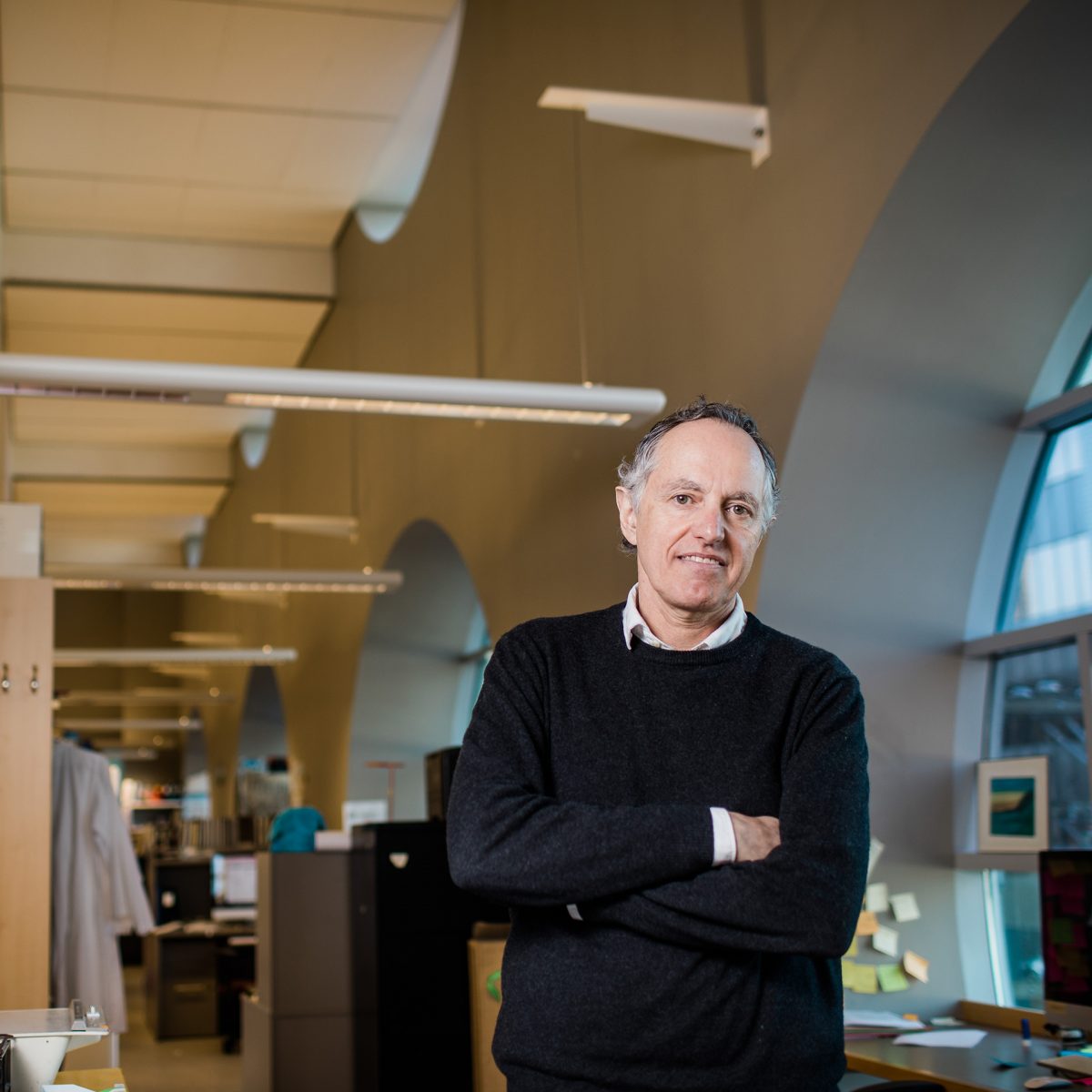
Dr. Poul Sorensen was already drawn to research as a student. He was driven by the idea of making new discoveries. It led to several breakthroughs in cancer research – also inspired by the collaboration with TUM scientists (Photo: University of British Columbia).
As chemotherapy was deemed unpromising by doctors, the parents had feared the worst. However, a newly approved medication was mentioned, prescribed to the daughter, resulting in the rapid shrinking of the tumor. The mother proudly told Dr. Sorensen that her daughter had just finished at the top of her high school graduating class, and had been accepted to university.
A LIFE-SAVING MEDICATION
This new medication is the outcome of Poul Sorensen’s research on an unusual gene mutation that prompts tumor cells to produce cancer-causing enzymes. The researcher identified the corresponding signaling pathway and discovered how to block it. Poul Sorensen, who has two children himself, reflects on receiving the email from the mother, stating, “Getting that email from a mother telling me how our discovery saved her daughter’s life was perhaps the most beautiful moment in my career so far.”
“Receiving the Email from This Mother Was Perhaps the Best Moment in My Career so Far.”
As a postdoctoral fellow at Children’s Hospital Los Angeles, he then realized how little we know about the biology and genetics of childhood cancer. The breakthrough that led to the drug developed by Sorensen more than 20 years later occurred just this time, when Dr. Sorensen returned to Canada to start his own research program. “We were researching an aggressive form of childhood cancer called a sarcoma, and finally discovered that this unusual gene mutation plays a role not only in this type of cancer, but also in at least 25 other types of cancer that are also relevant in adults,” says Sorensen.
IMPROVING THERAPIES THROUGH COOPERATION
The scientist has been working with TUM researchers in his “Sorensen Lab” at the University of British Columbia (UBC) for years. At a congress in Berlin, he met the pediatric oncologist and immunologist Prof. Stefan Burdach, who was until his recent retirement Professor of Pediatric and Adolescent Medicine at TUM – a connection that brought him and his family to Munich for a year-long research stay in 2016. “At that time, the great potential of immunotherapy to target tumors became increasingly clear,” says Poul Sorensen.
At that time, TUM was already very advanced in this form of therapy, which involves trying to find specific proteins that identify cancer cells, so to speak, and targeting them with the body’s own immune system. “My time in Munich taught me a lot in this field. Back in Vancouver, I focused a big part of my laboratory on the search for specific target proteins for immunotherapy,” says Poul Sorensen. It wasn’t long before he found a protein that protects cells from oxidative stress in some types of cancer, not just childhood cancers, allowing them to enter the bloodstream and form metastases throughout the body. “That pushed me to get even more involved in immunotherapy, thanks to my work with TUM colleagues.”
At the same time, Sorensen and the TUM team led by Stefan Burdach continued to work on a discovery they had already made in 2016/17: together they had discovered that the presence of a certain protein is associated with poorer treatment outcomes in several types of childhood cancer. They then investigated the reason – and found the answer when Sorensen was a guest at TUM for a second time in 2022: in an article that they finally published in the journal Blood, they described how the protein helps blood cancer cells to switch to a kind of energy-saving mode when they are threatened by low nutrient or oxygen levels.
They are currently working on an article that will show how bone cancer cells spread in the body by sending small packets of RNA and proteins forward in so-called extracellular vesicles. “They are like scouts that go out and create small niches into which the tumor cells can then go by switching off the immune system there,” explains Sorensen.
EXAMPLE OF SUCCESSFULL COLLABORATION
Poul Sorensen enthuses when he talks about the collaboration. “It’s a symbiotic relationship: I benefit from the knowledge in the field of immunotherapy, while my colleagues at TUM, including Prof. Burdach, Jürgen Ruland, and Roland Rad with whom I work in various research projects, can hopefully learn from me about our research into signaling pathways that cancer cells use.” However, the exchange is not only a benefit at work, but also on a personal level. “My family and I have always enjoyed our time in Munich very much and I have found great friends in Stefan Burdach and his team and my other colleagues there,” says Poul Sorensen, who shows a picture during the interview in which he and Prof. Burdach can be seen on vacation together in Denmark.
In 2023, TUM President Thomas F. Hofmann awarded Poul Sorensen the honorary title of TUM Ambassador in recognition of their many years of collaboration. This award means a lot to the researcher: “It shows me that I have a second scientific home that is very valuable to me,” he says. The title strengthens his connection to TUM and Munich and motivates him to do even more for student exchange between TUM and UBC.
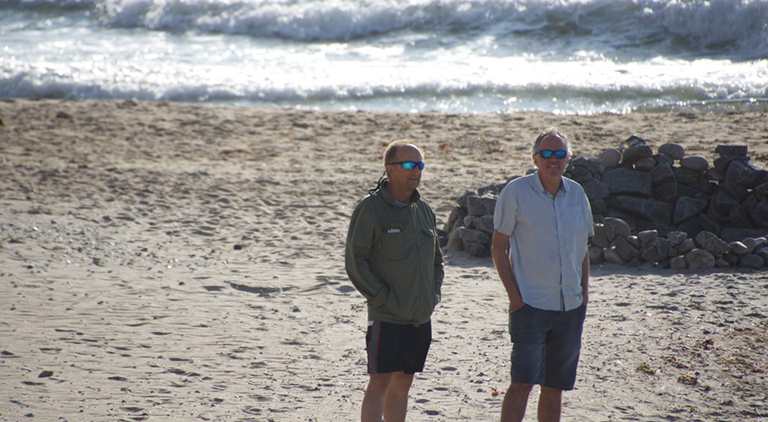
Poul Sorensen is now friends with TUM Professor Stefan Burdach: The photo shows them on vacation together in Denmark (Photo: Private).
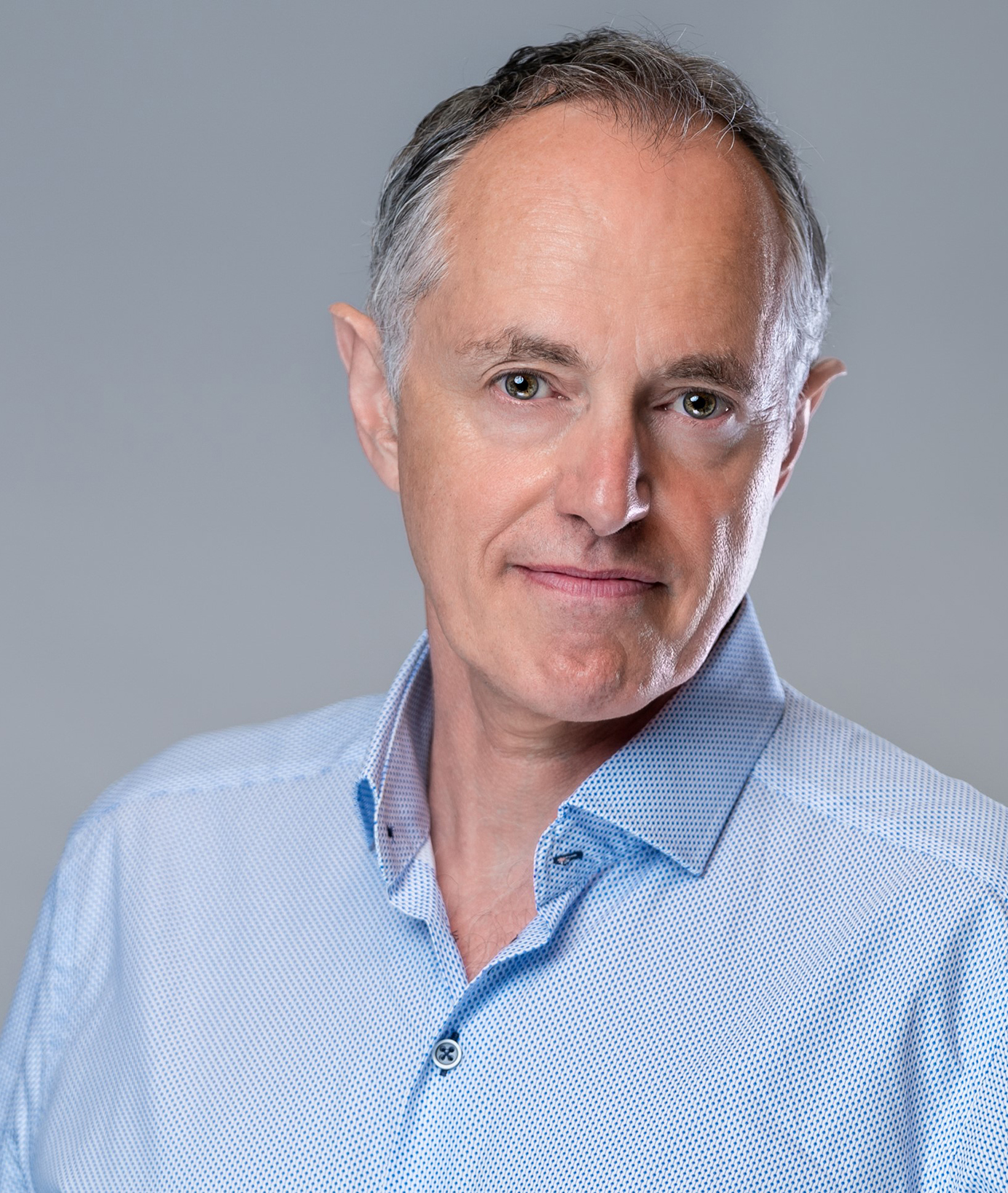
Dr. Poul Sorensen (Photo: University of British Columbia).
Vancouver, Canada
Professor, University of British Columbia, Vancouver, Canada
TUM August-Wilhelm Scheer Visiting Professor, TUM Global Visiting Professor Program
Serveral TUM stays: 2016-2022 with Professor Jürgen Ruland, Institute for Clinical Chemistry and Pathobiochemistry; Professor Roland Rad, Institute of Molecular Oncology and Functional Genomics; Professor Stefan Burdach, Pediatrics and adolescent medicine; Professor Wilco Weichert, Pathology, Professor Markus Schwaiger, Director of the Clinic and Polyclinic for Nuclear Medicine.
Dr. Poul Sorensen is a molecular pathologist and cancer biologist who specializes in the genetics and biology of childhood cancers. He heads the Sorensen Lab at the University of British Columbia (UBC) in Vancouver, where he also holds the prestigious Asa and Kashmir Johal Chair in Pediatric Cancer Research. He is also Professor of Pathology and Laboratory Medicine at UBC.
Poul Sorensen’s research initially focused on signaling pathways that are activated in childhood cancer and breast cancer. As a new Professor in the early 1990s, he made a discovery that led to the development of an important anti-tumor drug, which was approved worldwide in 2018.
After his research stay at TUM, Sorensen has devoted himself more to immunotherapy research from 2016 and on. He combines proteomic (protein identification) and biochemical approaches to identify proteins that are specifically enriched in human tumors to protect tumor cells from different stresses of the tumor microenvironment, but are minimally expressed in normal tissues. This should enable more targeted therapies that are better tolerated, especially by children.
The collaboration between TUM and UBC has not only led to significant publications, but also to three successful international fellowships for researchers from TUM and UBC. In 2023, TUM President Thomas F. Hofmann awarded Prof. Poul Sorensen the honorary title of TUM Ambassador.
TUM hosts Professor Stefan Burdach, Jürgen Ruland, Markus Schwaiger, Wilco Weichert, Roland Rad:
“Professor Sorensen has identified numerous disease-driving genetic alterations in childhood cancers and has led to the development of drugs that have saved countless lives. This has gained him worldwide recognition and numerous prestigious awards.”
TUM Ambassador Professor Dr. MD Poul Sorensen:
„My most cherished memories at TUM came from superb collaborative research made possible by my research stays. This includes studying new strategies for immunotherapeutic targeting of high-risk childhood cancers, as well as mechanisms of metabolic reprogramming in childhood leukemias. The latter work led to a high impact publication involving Professors. Burdach, Ruland, and Rad. The close collaboration continues today.”
